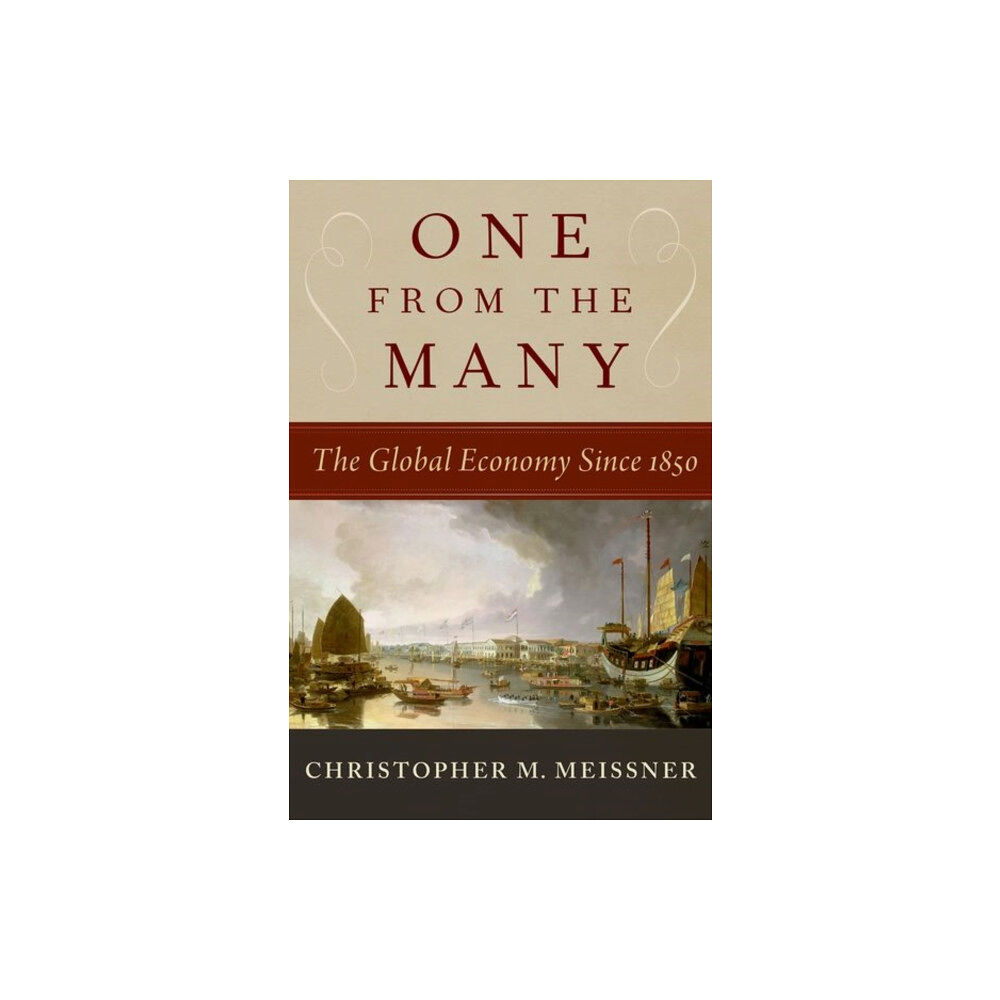- Hem
- Böcker
- Kurslitteratur
- Samhälle & Politik
- One From the Many (inbunden, eng)

One From the Many (inbunden, eng)
Amid a recent surge in arguments that the global economy has begun to "de-globalize," a question has emerged: will globalization survive? In...
909 kr
955 kr
Bara 5 kvar
Skickas inom 2-3 vardagar
- Fri frakt
Fri frakt över 299:-
Snabb leverans
Alltid låga priser
Produktbeskrivning
Amid a recent surge in arguments that the global economy has begun to "de-globalize," a question has emerged: will globalization survive? In One from the Many: The Global Economy since 1850, Christopher M. Meissner argues that based on the long-run of history, globalization will not be easily vanquished.
This brief introduction to the economic history of the global economy and the process of globalization since 1850 tracks and explains changes in international trade, migration, and capital flows over time. All key indicators of globalization rose between 1850 and 1914 during the first wave of globalization.
Between 1918 and 1939 the global economy stagnated, suffering a momentous collapse during the Great Depression of the 1930s. After World War II, the global economy re-emerged and integration deepened. A long-run view suggests that rising integration and growth of global economy can generate economic benefits and raise welfare.
Given these lessons, the global economy will almost surely survive and integration will continue to grow. However, globalization can only survive if humanity continues to recognize its common interests and the untapped potential of further integration. At the same time, the potential adverse effects of greater integration must be acknowledged, mitigated, and minimized.
Meissner''s brief history of the global economy offers economics, political science, and history students a new perspective on the history of its subject matter, with an eye on a future where globalization has the potential to persist as an integrative force.
This brief introduction to the economic history of the global economy and the process of globalization since 1850 tracks and explains changes in international trade, migration, and capital flows over time. All key indicators of globalization rose between 1850 and 1914 during the first wave of globalization.
Between 1918 and 1939 the global economy stagnated, suffering a momentous collapse during the Great Depression of the 1930s. After World War II, the global economy re-emerged and integration deepened. A long-run view suggests that rising integration and growth of global economy can generate economic benefits and raise welfare.
Given these lessons, the global economy will almost surely survive and integration will continue to grow. However, globalization can only survive if humanity continues to recognize its common interests and the untapped potential of further integration. At the same time, the potential adverse effects of greater integration must be acknowledged, mitigated, and minimized.
Meissner''s brief history of the global economy offers economics, political science, and history students a new perspective on the history of its subject matter, with an eye on a future where globalization has the potential to persist as an integrative force.
| Format | Inbunden |
| Omfång | 346 sidor |
| Språk | Engelska |
| Förlag | Oxford University Press Inc |
| Utgivningsdatum | 2024-03-26 |
| ISBN | 9780199924462 |
Specifikation
Böcker
- Inbunden, 346, Engelska, Oxford University Press Inc, 2024-03-26, 9780199924462
Leverans
Vi erbjuder flera smidiga leveransalternativ beroende på ditt postnummer, såsom Budbee Box, Early Bird, Instabox och DB Schenker. Vid köp över 299 kr är leveransen kostnadsfri, annars tillkommer en fraktavgift från 29 kr. Välj det alternativ som passar dig bäst för en bekväm leverans.
Betalning
Du kan betala tryggt och enkelt via Avarda med flera alternativ: Swish för snabb betalning, kortbetalning med VISA eller MasterCard, faktura med 30 dagars betalningstid, eller konto för flexibel delbetalning.
Specifikation
Det finns tyvärr inga specifikationer att visa för denna produkt.
